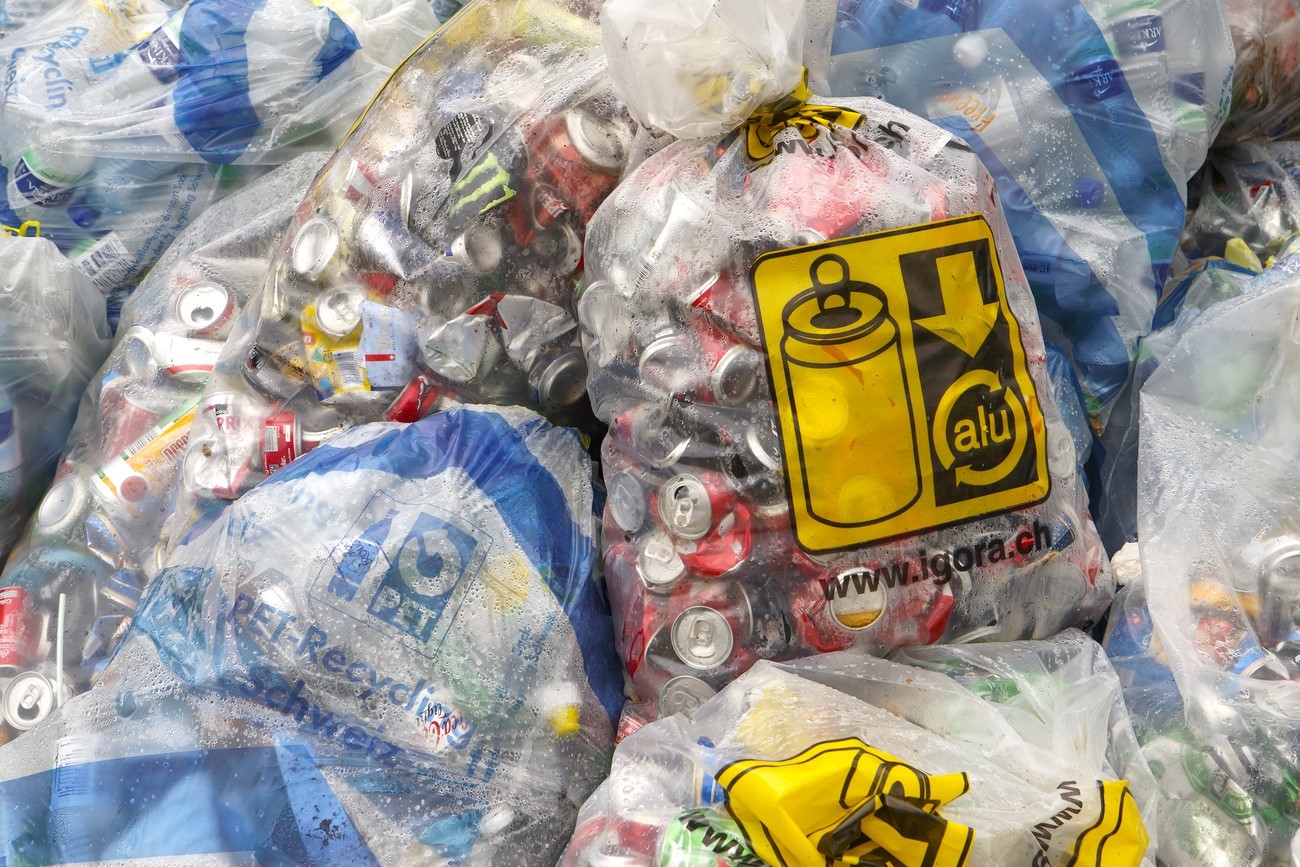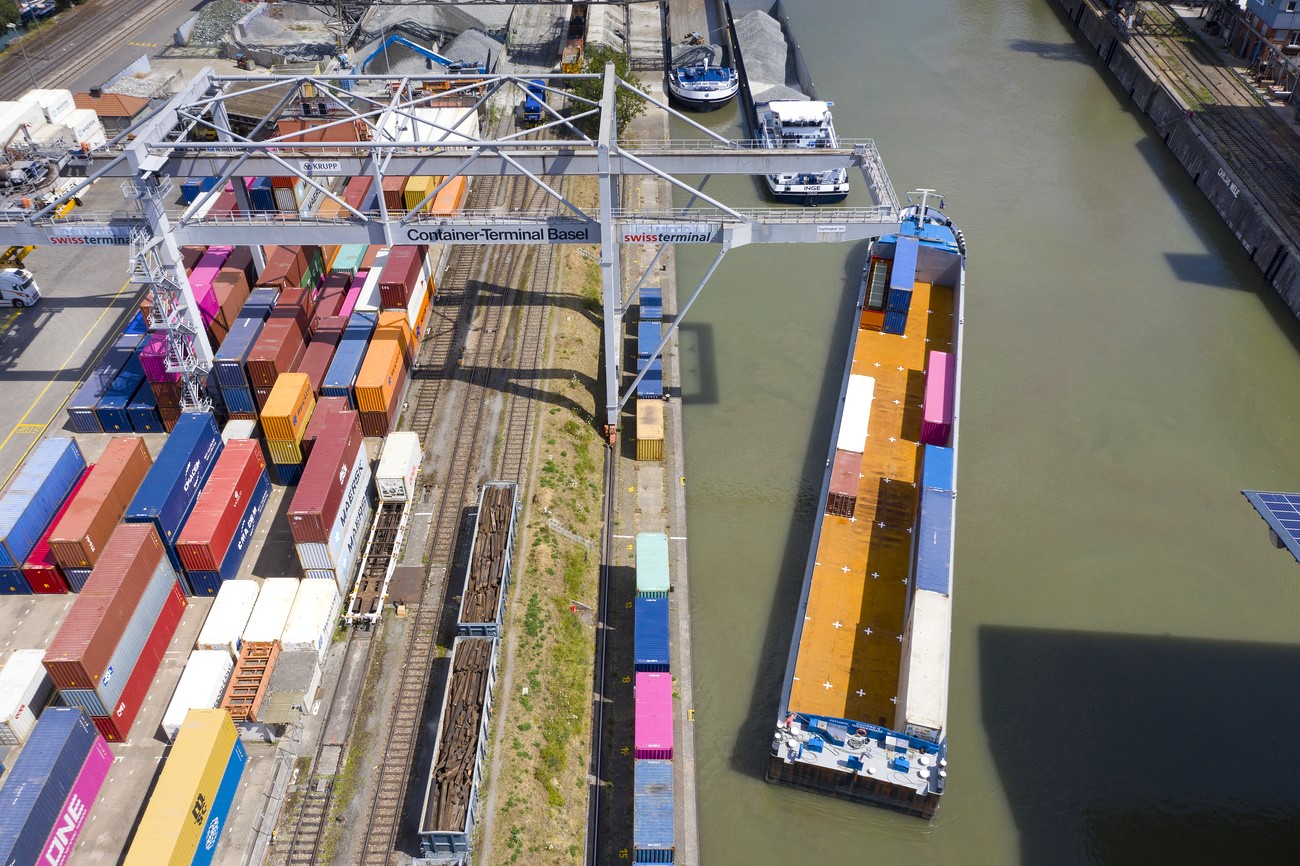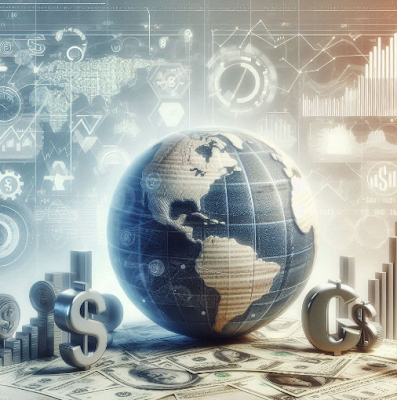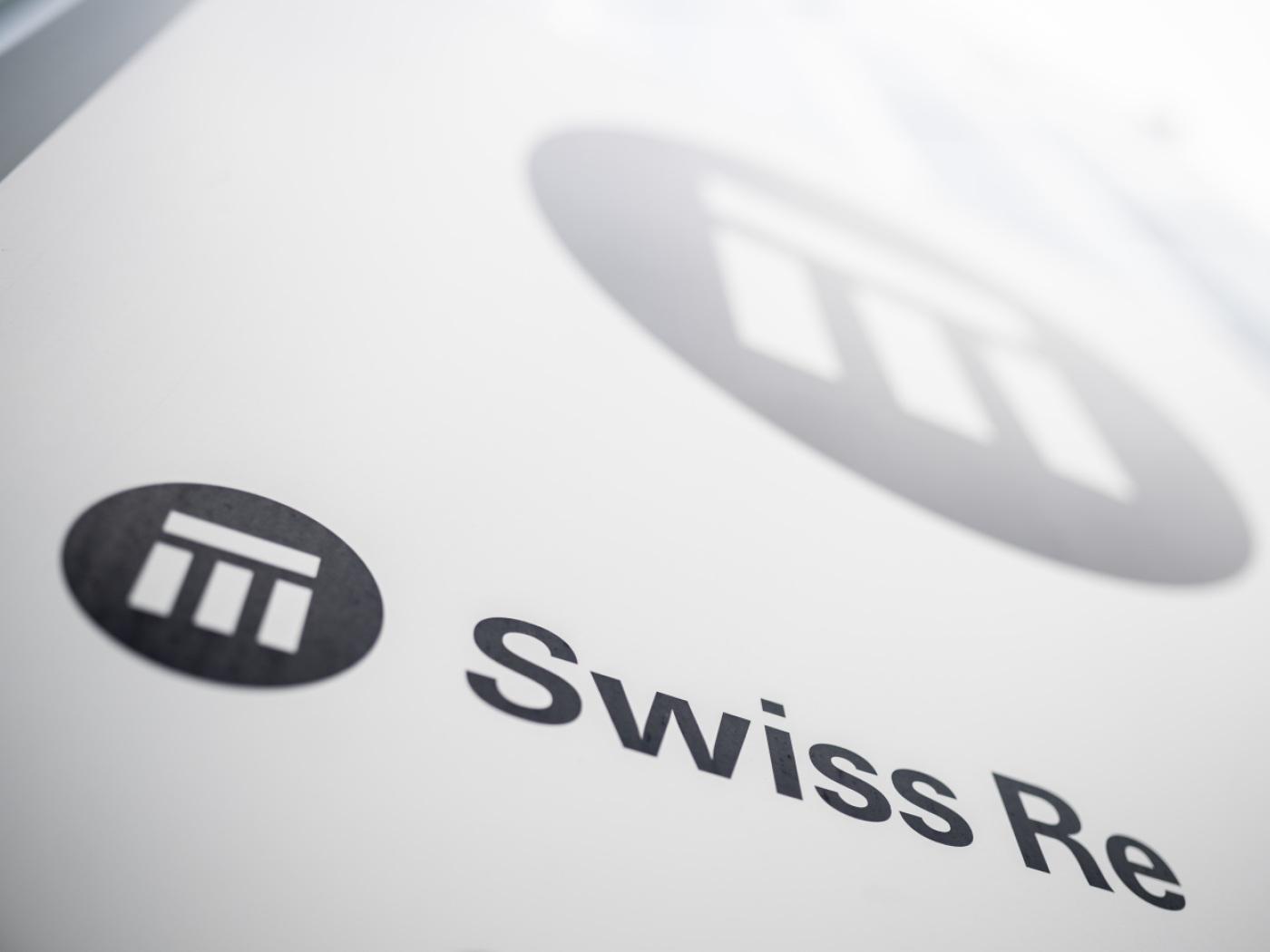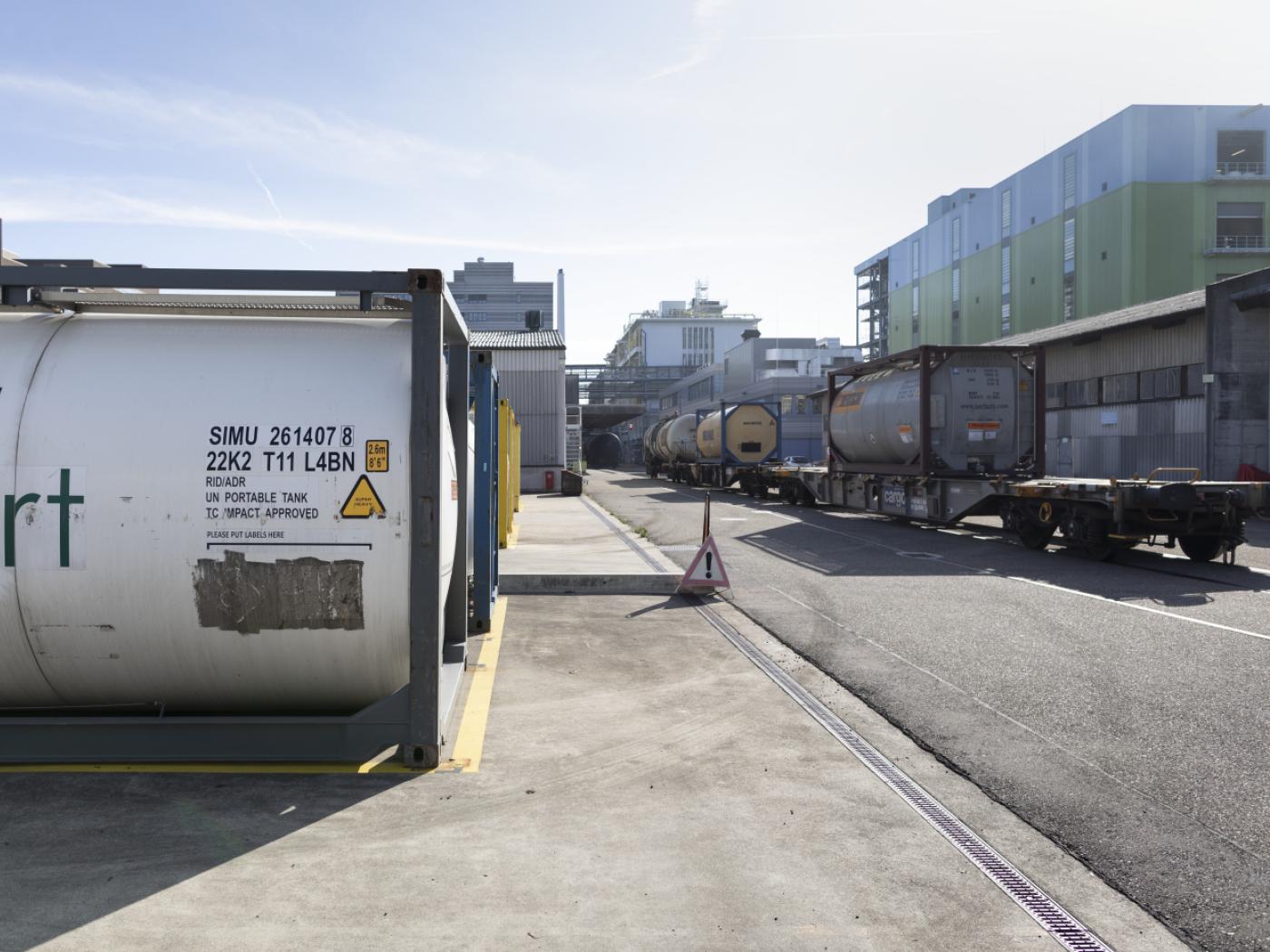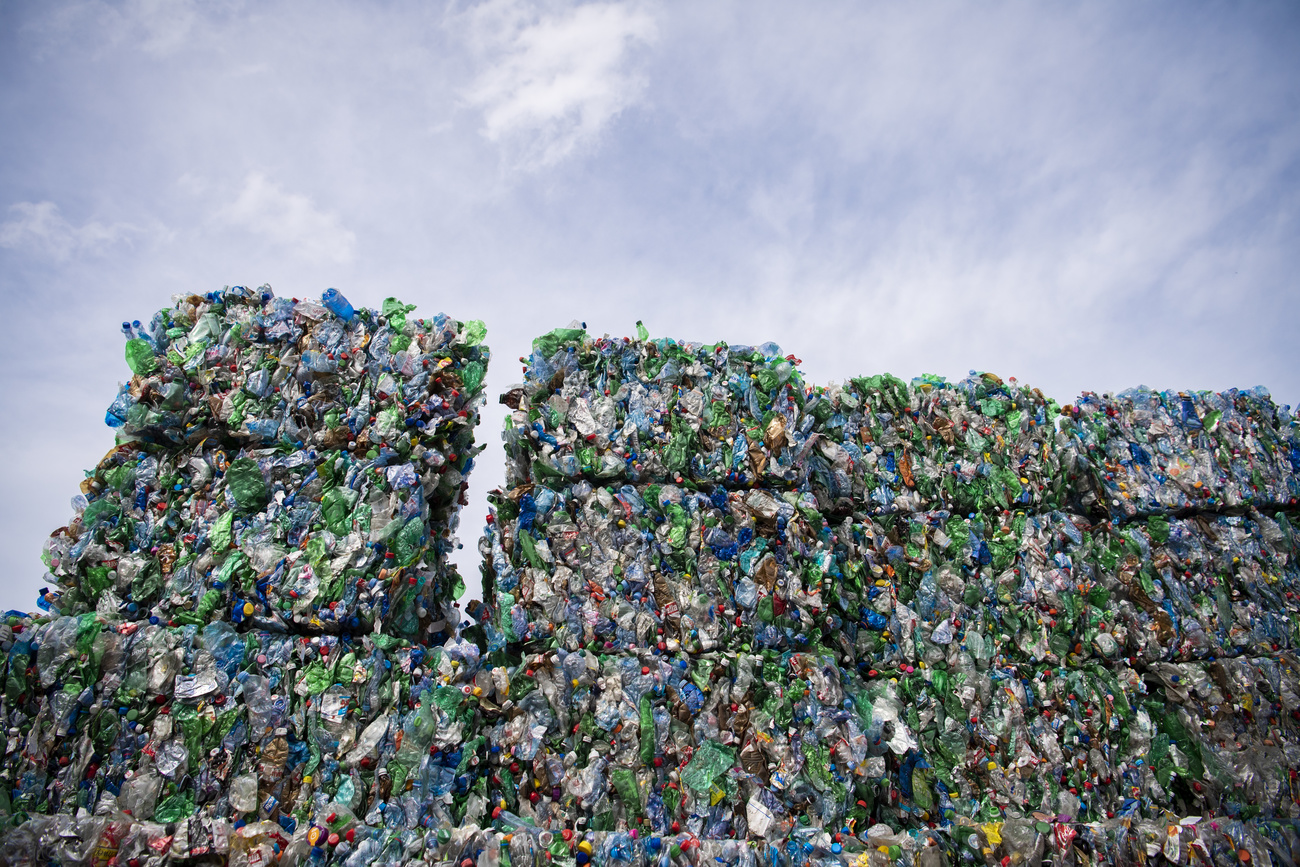
It might generate billions of dollars in illicit profits and pose a threat to human health, but the cross-border illegal waste trade is a crime that even countries with strict waste regulations, such as Switzerland, struggle to prosecute effectively.
Replacing an old car with a newer model is an unremarkable, everyday transaction in Switzerland. Anyone getting rid of a vehicle that’s no longer roadworthy probably assumes its life will end, efficiently, in a Swiss scrapyard.
Switzerland, after all, has strict waste management rules. It labelsExternal link vehicles at the end of their lives as “controlled waste”, to be handled only by licensed waste companies. With a permit, this waste can be exported for disposal to one of the 27 European Union member states or within the OECD, a group of 38 (mostly wealthy) countries.
Each year, however, the Federal Office for the Environment (FOEN) receives 150-300 reports of unlawful waste exports detected by customs officials. Most of these are used vehicles, followed by used tyres and used electronics, destined for other European countries and Africa.
This article is in response to a question from a SWI swissinfo.ch reader, who asked if it was true that large pieces of rubbish from Switzerland, such as used cars, were ending up in Africa. If you have a question about Swiss trade or diplomacy that you’d like us to answer, get in touch by leaving a comment in our debate on the topic.
And that’s likely to be just the tip of the iceberg. In 2023, Switzerland officially exported more than 460,000 tonnes of waste and imported 77,000 tonnes – part of a regulated global trade through which some 180 million tonnes of rubbish cross bordersExternal link each year. But some waste is traded illegally: the EU estimatesExternal link that a third of the waste it produces is trafficked. The FOEN does not have an equivalent estimate for Switzerland.
“The illegal trade in waste is a sector that’s under-reported,” said Amanda Cabrejo le Roux, deputy head of the Green Corruption programme at the Basel Institute on Governance. Detection is difficult, owing mainly to the sheer volume of containers moving around the globe. Only 2-10% of the more than 90 million containers arriving at EU ports each year are inspectedExternal link. Levels of inspection are likely even lower in other parts of the world, said Cabrejo le Roux.
Not only does this make data gathering tricky, she explained, but it also means bending the rules is relatively easy. Hence waste trafficking is considered a low-risk crimeExternal link worth billions of dollars.
Organised crime
As in other types of trafficking, money is the chief motivator for moving waste abroad illicitly, said Serena Favarin, a criminologist at the Università Cattolica del Sacro Cuore in Milan and researcher at Transcrime. After countries began tightening waste management regulations in the 1990s due to environmental and public health concerns, unscrupulous companies looked for ways to avoid the costs of proper waste treatment or disposal.
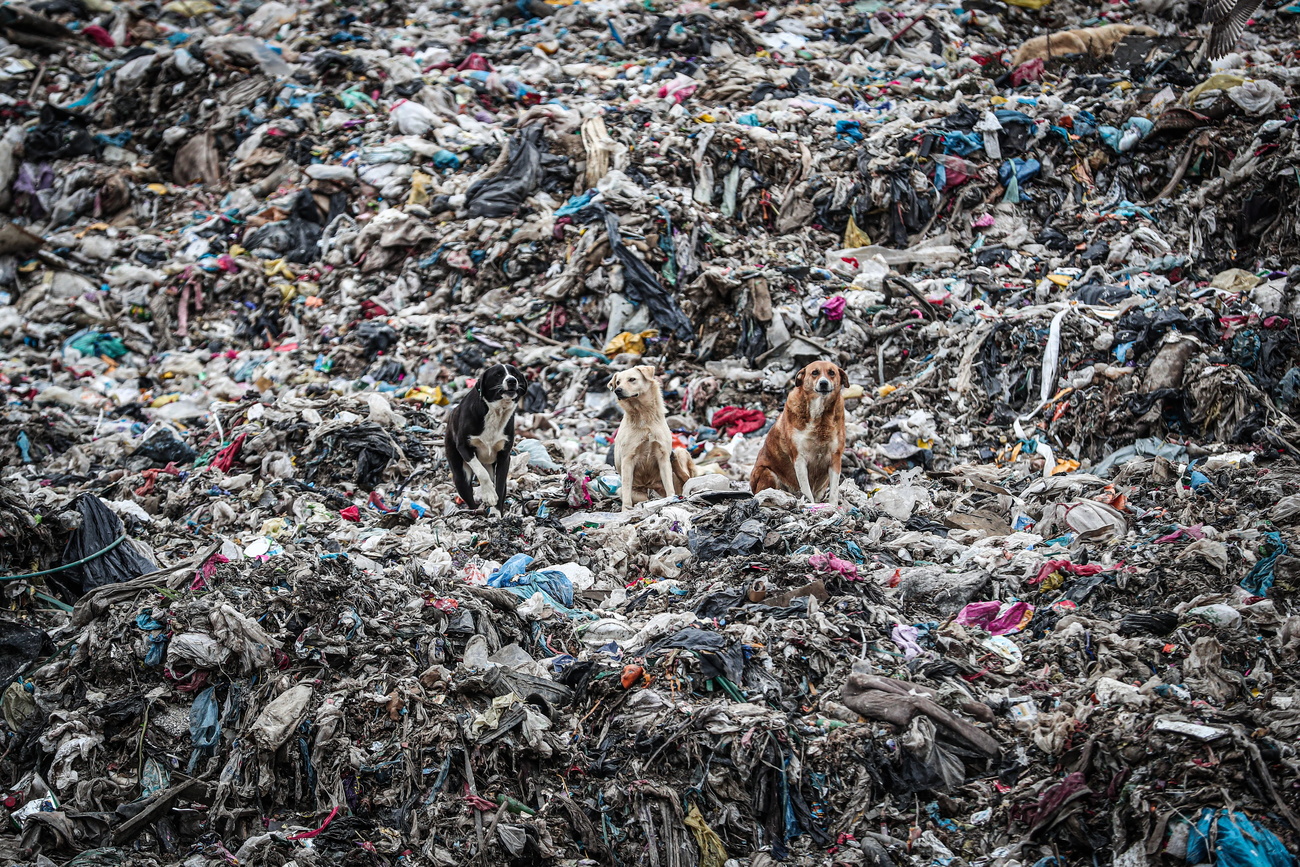
“They continue to bury the waste illegally,” said Favarin. “Or they ship it to third countries where regulations are less stringent, because it’s cheaper.”
Organised crime gangs are also involved, collecting large amounts of waste in one country to ship it elsewhere, she explained. Or, using a common mafia tactic, they infiltrate legitimate firms to win public contracts for waste management, only to then bypass regulations.
To get through customs, perpetrators often falsify documents and intentionally mislabel their exports. “The document might show it’s paper for recycling when it’s really lead acid batteries or something similarly toxic,” said Cabrejo le Roux.
In some cases, this trade can offer economic opportunities to both criminal enterprises and the informal sector in destination countries. Used cars, for example, can be resold, said Favarin, or their parts removed to produce other products. Up to two-thirds of a car can be strippedExternal link for plastic, textiles, rubber, glass and metal, according to the FOEN.
Exposure to health hazards
Many activists, however, callExternal link this trade “waste colonialism”, arguing that developed countries exploit economies that lack proper waste management facilities by sending them their unwanted rubbish.
“The attitude of exporting waste to Africa is more for dumping,” said Semia Gharbi, president of the Association of Environmental Education for Future Generations, a Tunisian NGO. “We know, for example, that only 9% of plastics are recycled in the best conditions, which means the rest is not re-used.”
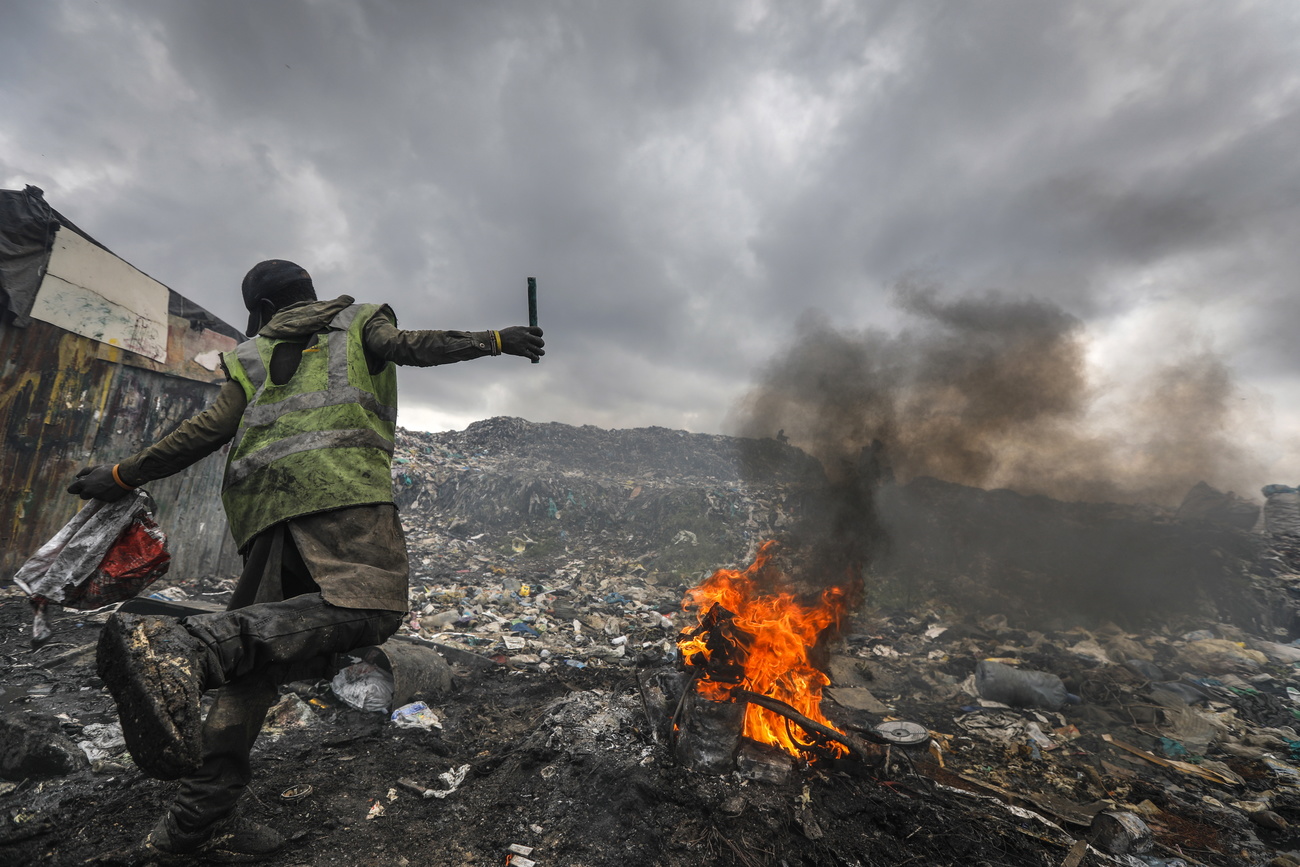
Untreated waste poses multiple health and environmental hazards. For example, when disposed of incorrectly, end-of-life vehicles can leach hazardous liquids and other pollutants. This is why the Basel ConventionExternal link on the Control of Transboundary Movements of Hazardous Wastes, which Switzerland has ratified, aims to limit the trade in this type of waste. In Africa, the Bamako ConventionExternal link bans the import of hazardous waste to the continent.
Old cars also pose safety risks and harm the environment when they continue to be used on the roads. The United Nations Environment Programme (UNEP) reportsExternal link that millions of used vehicles of “poor quality” arrive in low-income countries, predominantly in Africa, mainly through an unregulated trade from the West. These vehicles contribute “significantly to air pollution and [hinder] efforts to mitigate the effects of climate change”, UNEP writes.
When authorities detect illegal waste shipments, repatriation is often impossible, according toExternal link the UN Office on Drugs and Crime (UNODC), as traffickers tend to obscure the origin of their rubbish. Ultimately, it says, “most waste ends up in illegal landfills, the ocean, or burnt in the open”.
In the Philippines, which has received large illegal shipments of rubbishExternal link that sparked national outrage, fewer than 300 official landfills exist for a population of 117.3 million.
“That’s barely enough to cover domestic waste production, so there are lots of illegal dumpsites operating,” said Gregorio Rafael Bueta, a legal advisor for the NGO EcoWaste Coalition and lecturer at the Ateneo de Manila University School of Law. The waste then “seeps into our rivers and the [drinking] water of rural and urban communities”.
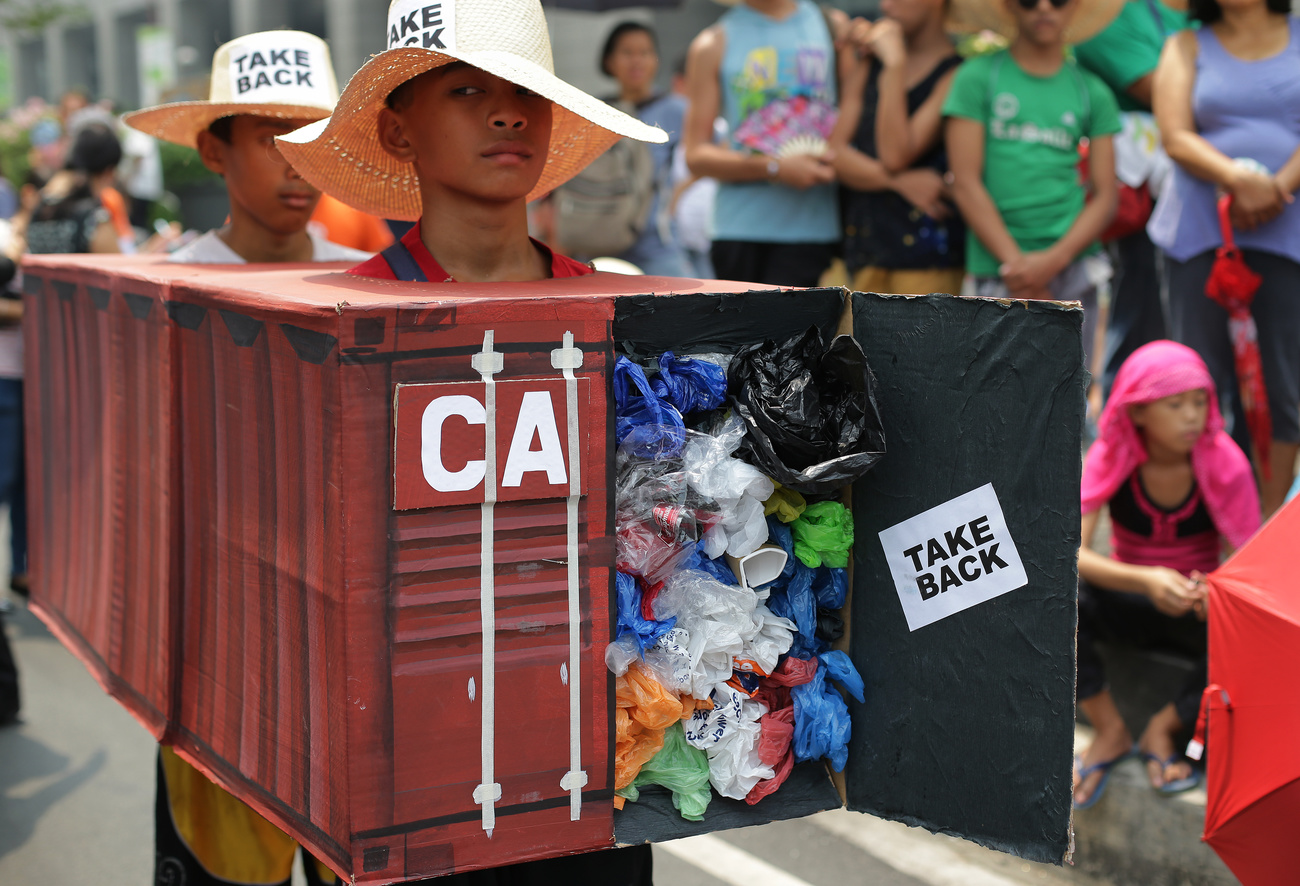
Workers in the country’s large informal sector, including women and children, said Bueta, “are the ones sifting through the trash [to turn it into a livelihood] and being exposed to the health hazards, aside from the impact on their dignity as people”. Informal waste workers come into contact with toxic chemicals and are vulnerableExternal link to injuries and respiratory ailments.
Growing awareness
Awareness of the illicit trade in waste is slowly growing. The World Customs Organisation acknowledges the need for more dataExternal link to better understand and tackle the problem. Both UNODC and UNEP are mapping global waste-trafficking trends and training customs officers in detection.
+ Sign up to get our weekly newsletter on Swiss foreign affairs
The EU in 2024 introducedExternal link a new waste shipments regulation and an environmental crime directive that, among other things, ban plastic exports outside the EU and slap tougher penalties on waste criminals.
These measures are important, said Favarin, but they also highlight a “misalignment” between countries that have strict regulations, enforcement and penalties and those that do not, which makes fighting the illicit trade more difficult. Often, the UNODC notes in a report on waste trafficking from Europe to Southeast Asia, “penalties are disproportionately low compared to the potential environmental and health damage inflicted on destination countries”.
More
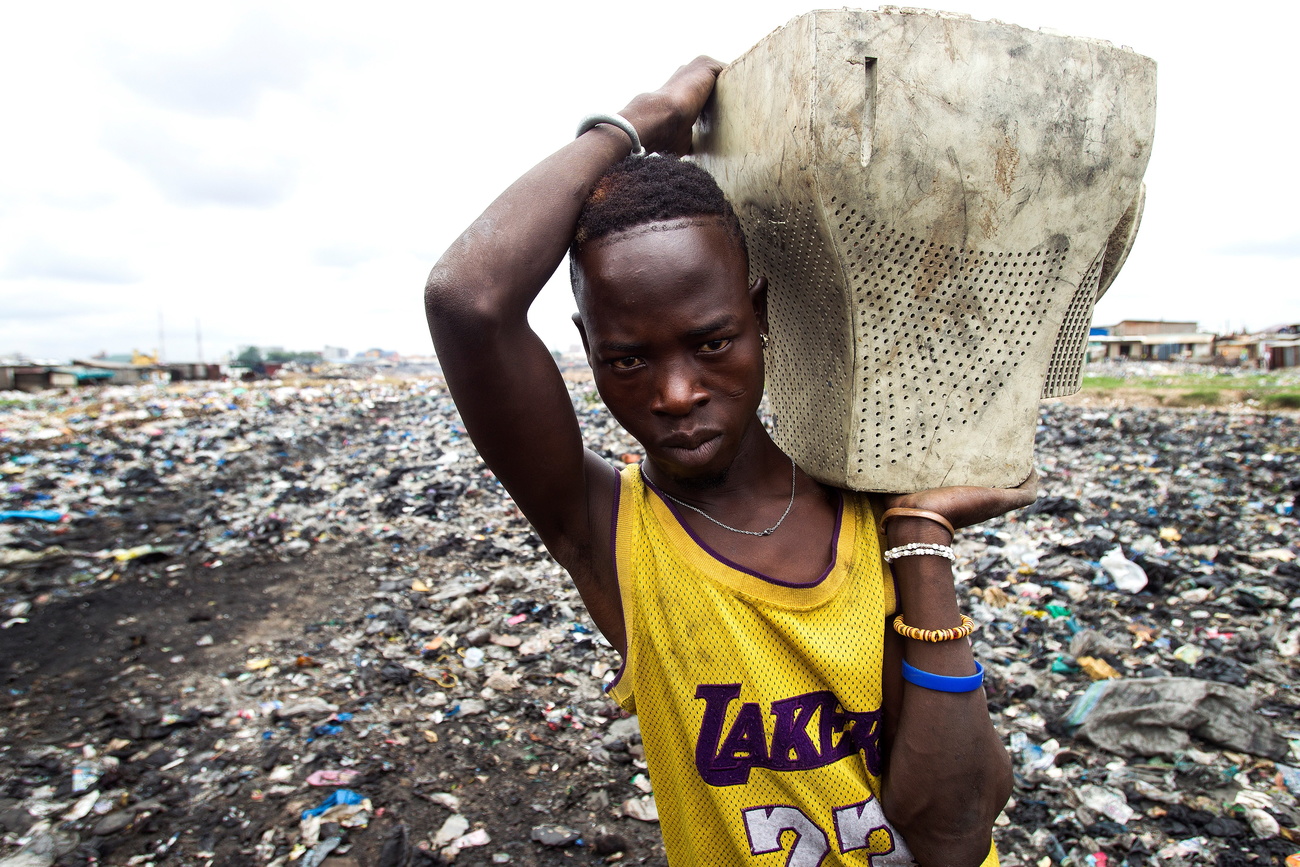
More
The battle against global e-waste dumping reaches tipping point
In Switzerland, the lawExternal link allows for prison terms of up to three years for illegal imports or exports of waste. Yet of the 25 charges filed against illegal waste shipments in 2023, 15 ended in convictions – all fines, ranging from CHF200 ($222) to CHF8,000.
To really tackle the problem, however, “it’s not about just getting rid of a few bad apples”, said Cabrejo le Roux. Instead, she suggests strengthening policies to ensure there’s no “undue influence” that could lead to corruption in awarding contracts for domestic waste management, and reinforcing capacity for inspections at waste sites, ports and borders.
Wealthy nations also need to reconsider their current practices, she said, asking: “Should Western countries send their waste away or should they try to address it in a more sustainable way?” The UN expectsExternal link global municipal solid waste to grow from 2.1 billion tonnes in 2023 to 3.8 billion by 2050.
In the Philippines, activists are calling for a ban on all waste imports, just as ChinaExternal link, once the world’s largest importer of plastic waste, did in 2019. They also want the government to sign the Ban AmendmentExternal link to the Basel Convention, which prohibits OECD and EU states from exporting hazardous waste.
“It would send a signal,” said Bueta, “that we are not the developed world’s dumping site”.
Edited by Lindsey Johnstone/ts/vm
More
Tags: Featured,newsletter










